Two blocks A and B of masses mA and mB have velocity v and 2v respectively at a given instant A horizontal force F acts on the block A There is no friction between ground and block B and coefficient of friction between A and B is μ The friction

on A supports its motion
on B opposes its motion relative to A
on B oppose its motion
oppose the motion of both
The correct Answer is:a,b,c
Friction on A and B acts a shown in figure

From the figure it is clear that friction on A supports it motion and on B oppose its motion and always oppose relative motion
Topper's Solved these Questions
- NEWTON'S LAWS OF MOTION 2BOOK - CENGAGE PHYSICSCHAPTER - NEWTON'S LAWS OF MOTION 2EXERCISE - Multiple Correct
2 Videos
- NEWTON'S LAWS OF MOTION 2BOOK - CENGAGE PHYSICSCHAPTER - NEWTON'S LAWS OF MOTION 2EXERCISE - Linked Comprehension
52 Videos
- NEWTON'S LAWS OF MOTION 2BOOK - CENGAGE PHYSICSCHAPTER - NEWTON'S LAWS OF MOTION 2EXERCISE - Subjective
21 Videos
- NEWTON'S LAWS OF MOTION 1BOOK - CENGAGE PHYSICSCHAPTER - NEWTON'S LAWS OF MOTION 1EXERCISE - Integer
5 Videos
- PROPERTIES OF SOLIDS AND FLUIDSBOOK - CENGAGE PHYSICSCHAPTER - PROPERTIES OF SOLIDS AND FLUIDSEXERCISE - INTEGER_TYPE
2 Videos
Similar Questions
Find the minimum value of horizontal force (F) required on the block of mass m to keep it at rest on the wall. Given the coefficient of friction between the surfaces is μ.

View SolutionIn the arrangement shown in figure, coefficient of friction between the two blocks is μ=1/2. The force of friction acting between
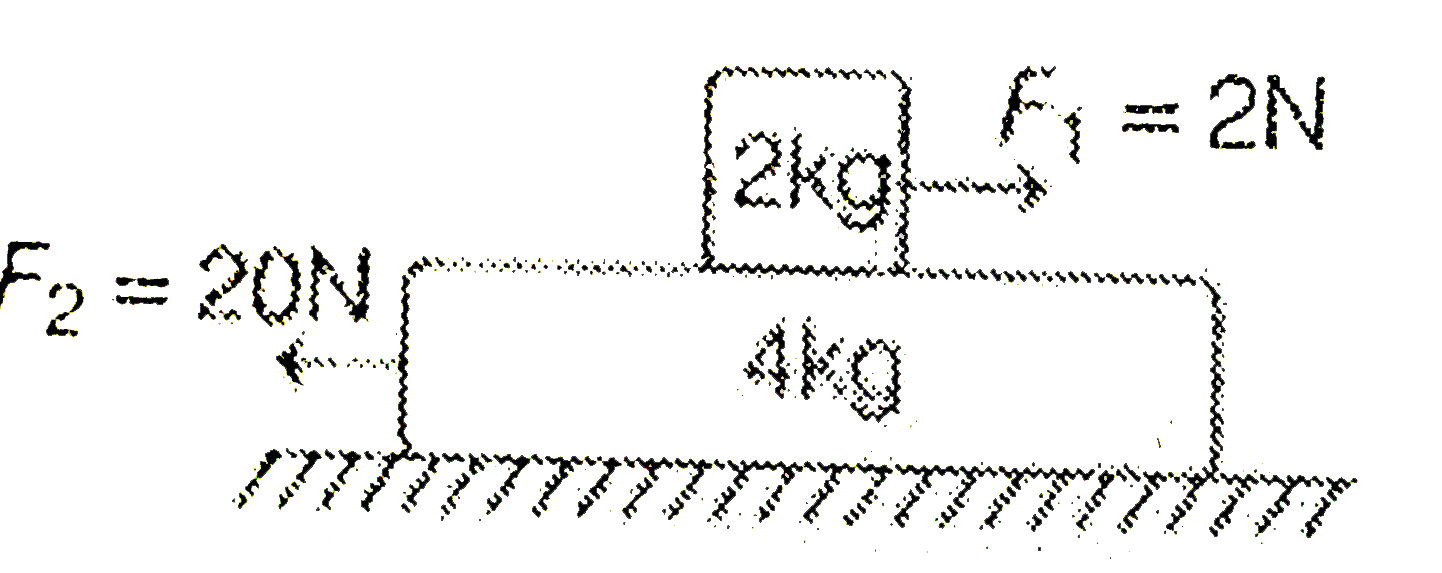
View Solution
Knowledge Check
A horizontal force F acts on the block of mass m and the block remains stationary, thr value of friction force is.
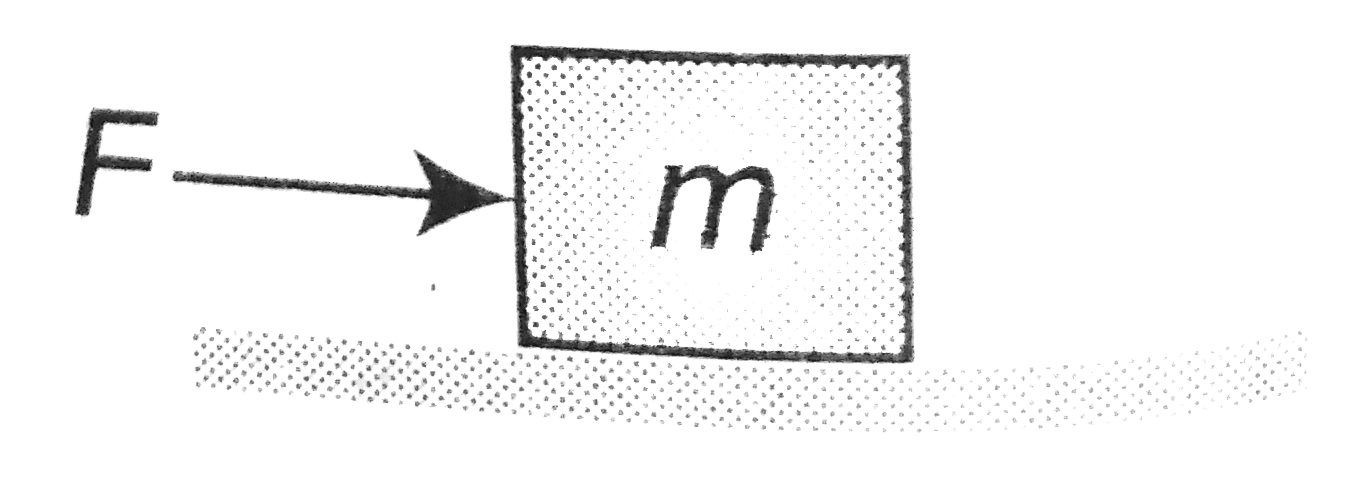 AμmgBμmg−FCFDzero
AμmgBμmg−FCFDzeroBlock A of mass 2kg is placed over a block B of mass 8kg . The combination is placed on a rough horizontal surface. If g=10ms−2 , coefficient of friction between B and floor =0.5, coefficient of friction between A and B=0.4 and a horizontal force of 10N is applied on 8kg block, then the force of friction between A and B is.
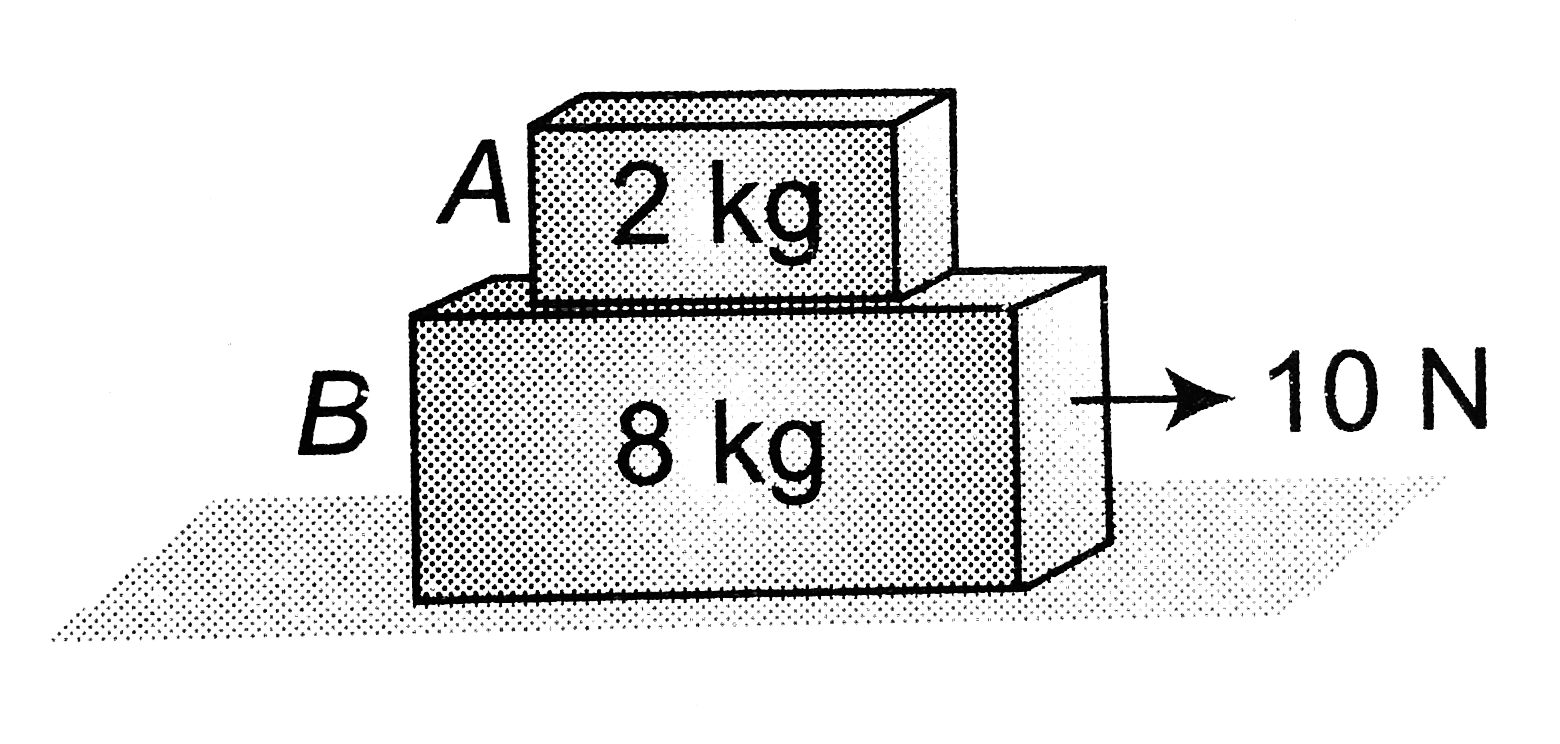 A100NB50NC40NDNone of these
A100NB50NC40NDNone of theseWedge is fixed on horizontal surface. Block A is pulled upward by applying a force F as shown in figure and there is no friction between the wedge and the block A while coefficient of friction between A and B is μ. If there is no relative motion between the block A and B then frictional force developed between A and B is
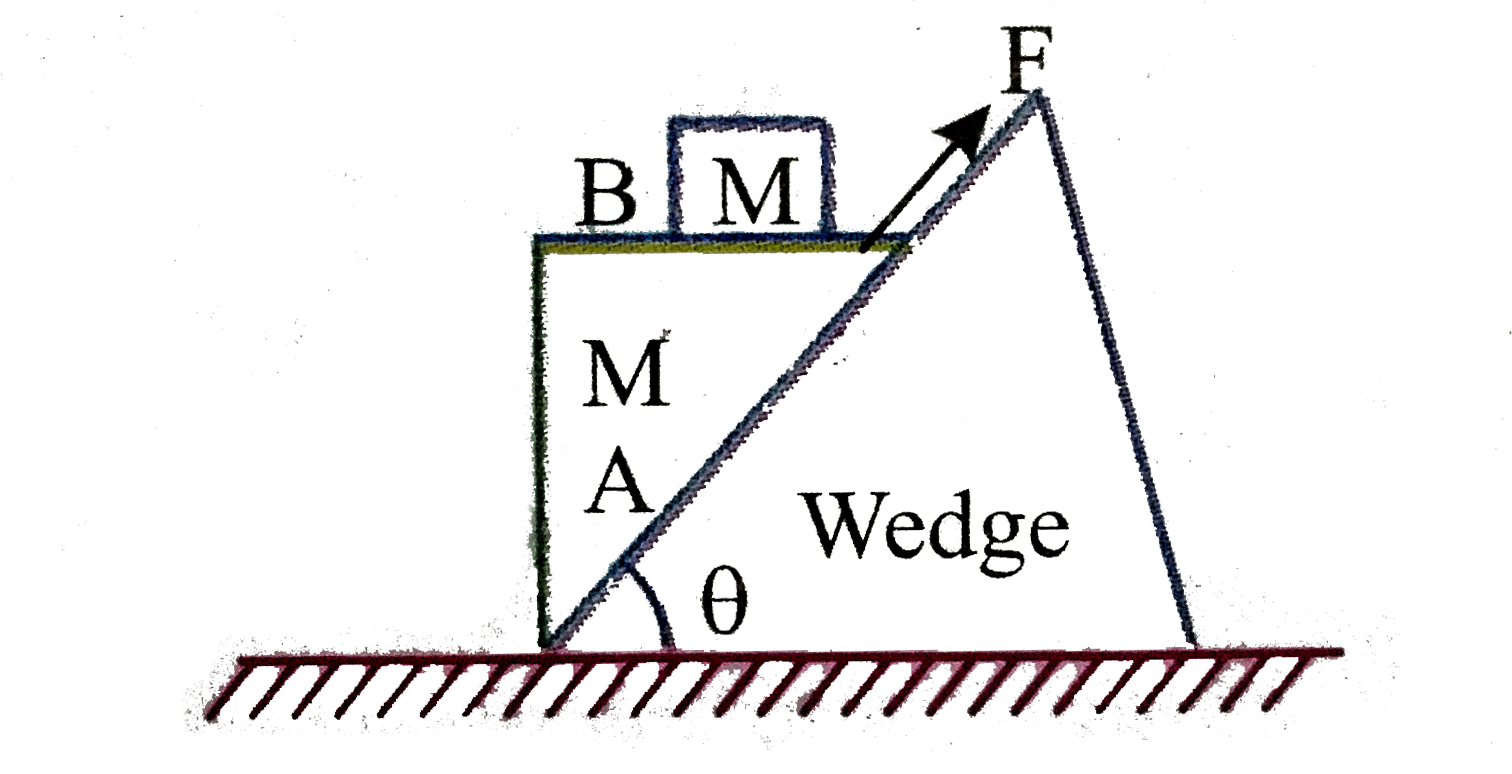 A[F+(m−M)gsinθ(m+M)]mcosθBμmgC[F−(m+M)gsinθ(m+M)]mcosθDμmg/2
A[F+(m−M)gsinθ(m+M)]mcosθBμmgC[F−(m+M)gsinθ(m+M)]mcosθDμmg/2
A block A with mass 100kg is resting on another block B of mass 200kg. As shown in figure a horizontal rope tied to a wall hold it. The coefficient of friction between A and B is 0.2 while coefficient of friction between B and the ground is 0.3 . the minimum required force F to start moving B will be.
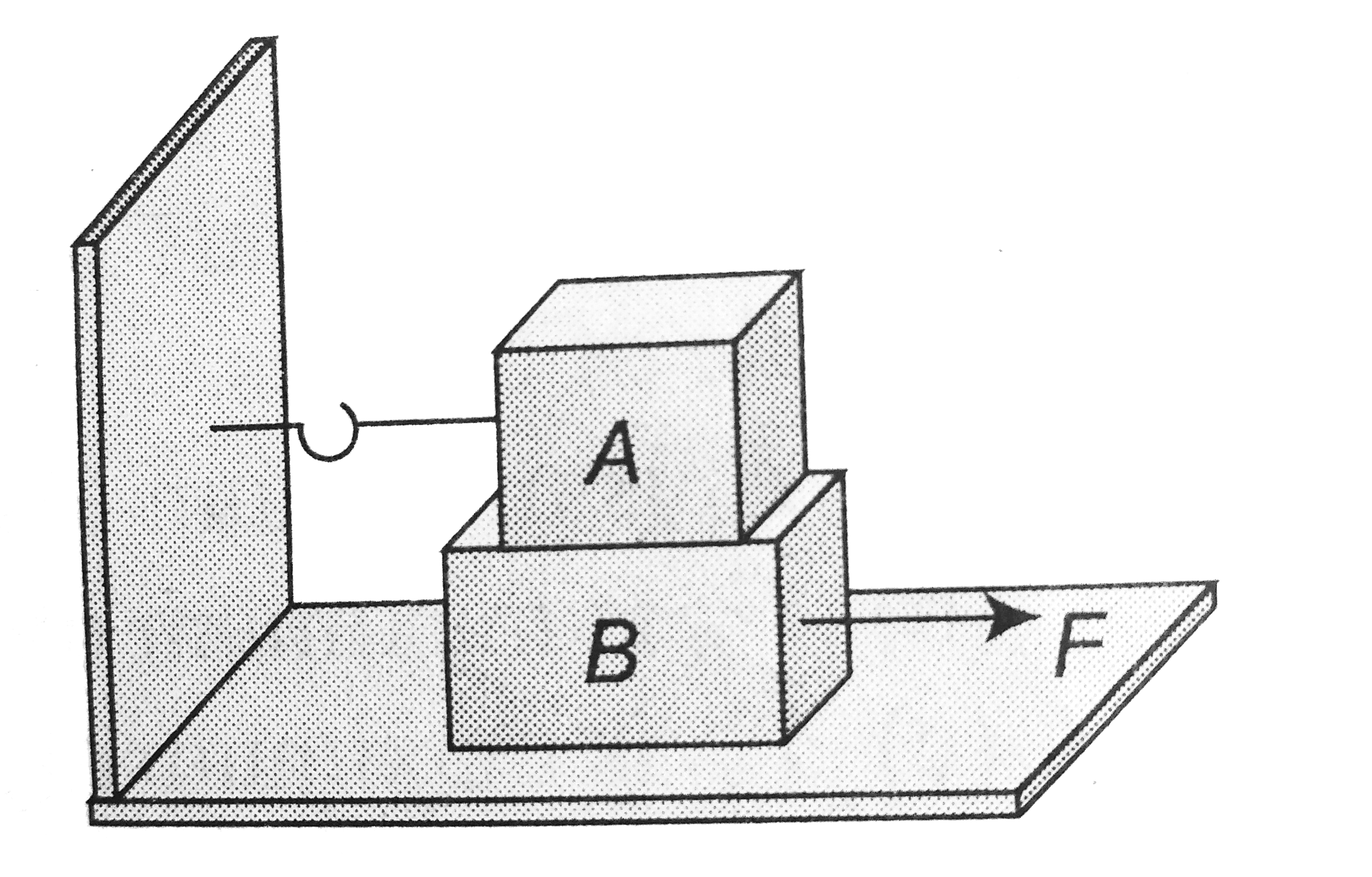
View SolutionA block of mass m2 is placed on a horizontal table and another block of mass m1 is placed on top is it. An increasing horizontal force F=αt is exerted on the upper block but the lowwer block never moves as a result. If the coefficient of friction between the blocks is μ1 coefficient of friction between the blocks is μ1 and that between the lower block and the table is μ2, then what is the maximum possible value of μ1/μ2 ?
View SolutionA force F accelerates a block of mass m on horizontal surface. The coefficient of friction between the contact surface is . The acceleration of m will be -
View SolutionA homogenous block of mass m, width b and height h is resting on a rough horizontal surface A horizontal force F is applied to it , which makes it to move with a constant velocity . The coefficient of friction between block and surface is μ Find the greatest height at which force F may be applied to slide the block with out tipping over
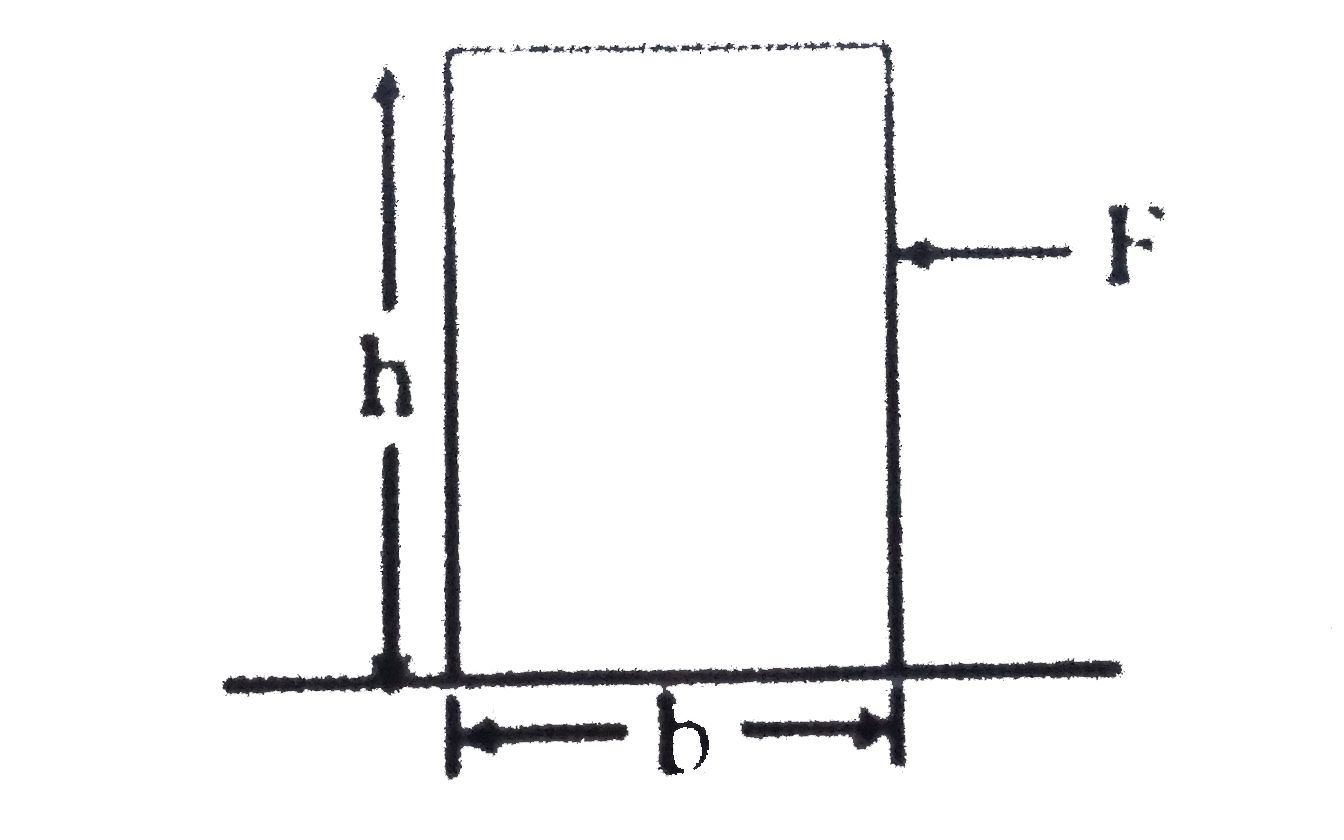
View SolutionThree indentical uniform blocks of mass m each and length L are placed on a smooth fixed horizontal surface as shown. There is friction between A and B (Friction cofficient μ) while there is no friction between A and C. At the instant shown, that is at t=0, the block A has horizontal velocity of magnitude u towards right, whereas speed of B and C is zero. At the instant block A has covered a distance L relative to block B velcity of all blocks are same.
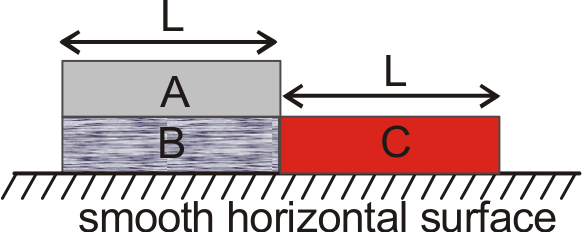
The magnitude of total work done by friction on system of three blocks is
View Solution
